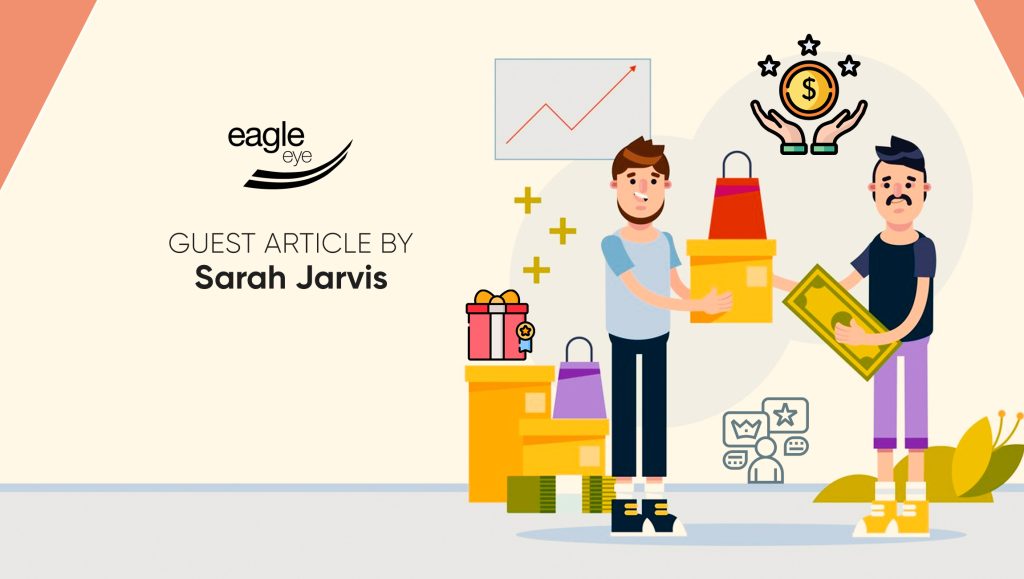Gamification has long been part of the shopping experience, but AI is making it more personal and effective than ever.
Retailers are exploring new methods to design and develop hyper-personalized games and contests within their loyalty programs, effectively using gamification to layer additional value on top of their existing loyalty propositions. With AI and predictive analytics, they can automate tailored challenges at scale, significantly enhancing their connection with loyalty program members and critical shopper segments.
Enhancing what consumers expect from gamification
Many retailers have already developed unique and creative ways to engage consumers through gamification. Asda, for example, has seen tremendous success engaging customers through its “Spin the Wheel” game inside its mobile app where the retailer has rewarded millions of customers with money and prizes as they unlock the chance to spin and win every time they meet the £5 minimum spend threshold.
One of Canada’s largest retailers, Loblaw, has also implemented gamification, but in a slightly different way and aimed at a different segment of shoppers. Loblaw’s PC Health proposition, which provides healthcare services to shoppers, introduced a gamified experience that engages with consumers using Fitbits or Apple watches, awarding users bonus points for hitting a step count goal, for example.
While both Asda and Loblaw deliver great gamified experiences for users, AI-powered personalization will take them further. By leveraging a shopper’s sales history, loyalty interactions, and additional data sources such as time, weather and preferences, AI-powered personalization tools can help transform gamified encounters into true 1-to-1 experiences.
This enhanced approach to gamification is exemplified by Tesco and Carrefour, both of which introduced personalized gamification through challenges inside their loyalty programs to great fanfare within the grocery industry. Both retailers are using AI to automate the creation and execution of fully personalized challenges for each loyalty member enrolled in the challenges offering. As each consumer completes a custom, designated task, they receive a custom reward. The AI automatically selects contests and rewards based on the individual’s purchase history and preferences.
These programs offer gamification with a purpose—moving beyond simply engaging customers to rewarding them individually for displaying desirable behaviors.
Read More: SalesTechStar Interview with Cody Manning, Chief Sales Officer at Yooz
Three benefits of personalized gamification at retail
Gamification has long been recognized as a powerful marketing strategy. Nearly 70% of respondents in a 2023 Euromonitor International survey cited it as a top loyalty tactic, noting that adding challenging and competitive elements significantly boost customer engagement and retention. Gamification also fulfills consumers’ desires for immersive and goal-oriented experiences.
By integrating AI-powered personalization, retailers can elevate their gamification efforts and enjoy three key benefits:
1. Improved loyalty
In a global shopper survey by Eagle Eye, 60% of North American shoppers said they rely on loyalty programs to save money, and 66% of global consumers say they would or already do participate in games and contests within their favorite loyalty programs. When retailers combine these two desires, the result is a more loyal shopper. Personalized challenges within the rewards program can inspire those consumers while they shop and help them save money in a fun way. By leveraging the member’s loyalty data, these personalized gaming experiences make shoppers feel recognized and valued.
2. Boosted engagement and incremental spending
Eagle Eye’s global survey also revealed that 84% of shoppers believe personalized rewards help them save money. Loyalty members see saving on their favorite items as the primary benefit of a loyalty program, and personalized gamification directly caters to this need. By offering tailored rewards and challenges, retailers can increase member engagement and drive both the consolidation of spend into their business, as well as encourage incremental spending, as members are more likely to participate in programs that provide tangible savings on items they frequently purchase.
3. Unlock a new revenue stream
By deploying new, gamified tactics retailers gain the opportunity to open new revenue streams by collaborating with suppliers who want to reach their shoppers through these highly engaging and personalized marketing initiatives. Games and challenges can become new, high-value items on a retailers’ Retail Media inventory, with suppliers keen to fund these tactics to drive their own objectives in collaboration with their retail partners.
Revamping Gamification in retail
In the near term, as retailers further their use of AI across their businesses, personalized loyalty programs will continue to expand. AI, automation, and personalization will be touching every part of the retail journey, including loyalty accounts.
Retailers like Asda, Loblaw, Tesco and Carrefour are navigating new waters around personalization and loyalty, but companies will see clear benefits—more loyalty, more active shoppers, and more incremental spending when they can create true 1-to-1 engagement across all touchpoints. Executing personalized programs at scale necessitates the use of AI and predictive analytics to automate challenges and tailor rewards.
To successfully implement gamification, retailers must invest in advanced technology and partner with industry experts. By doing so, they can cultivate deeper customer engagement and drive long-term growth through a uniquely tailored shopping experience.
Read More: Gender Dynamics in Sales: Are Women More Effective Cold Callers Than Men?





















